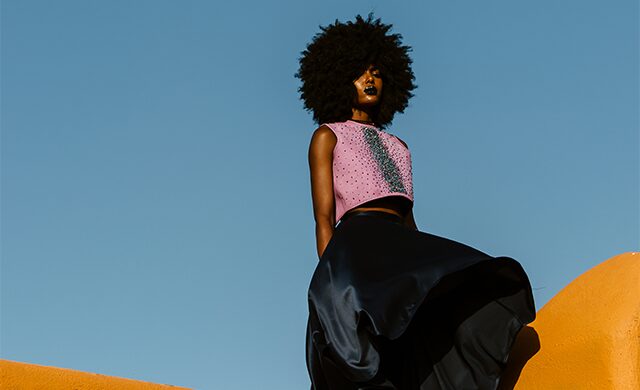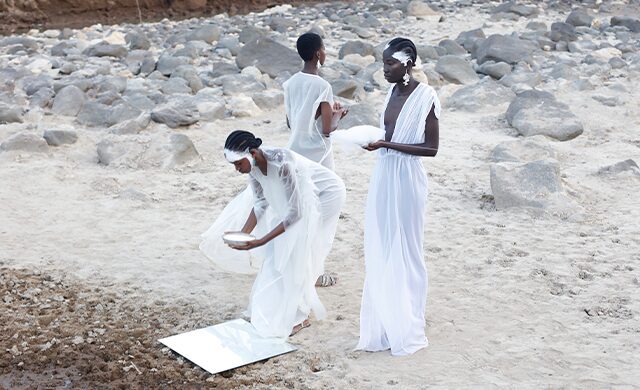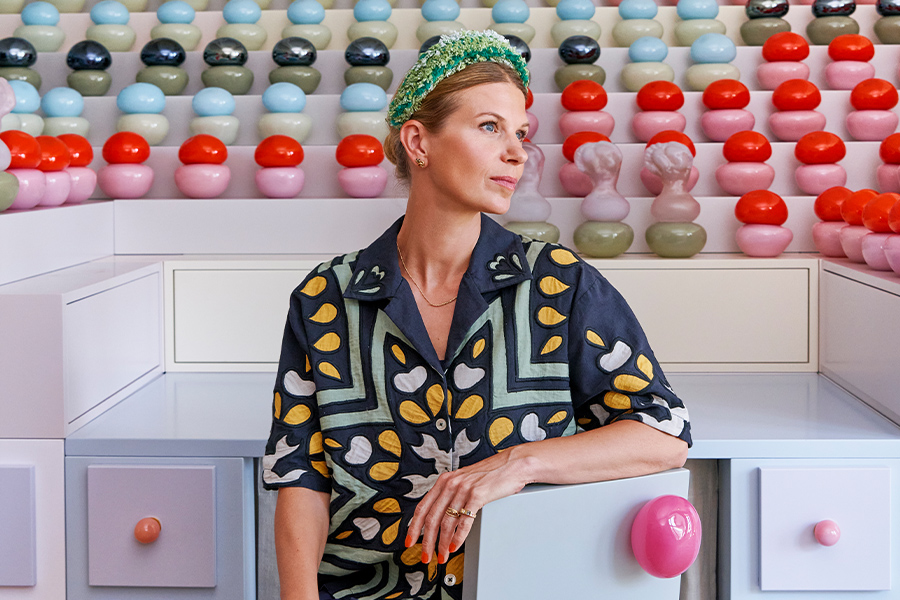Born in Nairobi, Sunny Dolat is a hotelier by training who spent four years at the city’s boutique hotel Tribe, where he was elevated to brand ambassador. The position allowed Dolat to explore his creative side without limits and served as the catalyst for him to leave and pursue his other artistic passions. Today, the ability to self-define is critical to his work for the Nairobi-based Nest Collective, which he founded in 2012 alongside a group of artists and creatives, including Jim Chuchu, Dr. Njoki Ngumi, and George Gachara. Working through African, Black, feminist, and queer lenses, the multidisciplinary arts collective has morphed into a cultural cornerstone. “It’s always been important for us to talk about ourselves in our work, the way the world sees us, and also the way we see ourselves,” Dolat explains. “That’s an act of taking back power. You no longer let other people describe you, but you stand up and tell your own story.”
For Art’s Sake
Since leaving the hotel world behind, Dolat’s primary mediums have been fashion and photography, where he challenges the expectations of the African aesthetic. “I’ve always been dissatisfied with the way people spoke about fashion from the continent,” he explains, “because it always felt very singular. For those of us who have grown up [here], we know there are many facets to [it].” This led to the Nest Collective publishing Not African Enough, a book that explores the politics of Kenyan dress while also unpacking the idea of African design and fashion. It also relates to the release of Stories of Our Lives. A turning point for the collective, the film, which tells the stories of LGBTQIA+ Kenyans, was banned in the country where homosexuality is still punishable by law. But the collective still deemed it a success because it “gave us an opportunity to frame ourselves as Black queer Kenyans,” he says.

A model on a roof during the 2019 N’golá Biennial of Arts and Culture
Subverting Expectations
Last July, Dolat was invited to create a piece for the N’golá Biennial of Arts and Culture, a multidisciplinary event held in São Tomé e Príncipe. His most ambitious project yet, he set out to present 55 African designers, one from each country on the continent plus the diaspora. In the end he showcased 46, an impressive ensemble that allowed Dolat to visualize Africa while also interrogating how “far the tentacles of colonialism reach in this day and age,” he says. People, Dolat points out, are often surprised by how conservatively Kenyans dress in terms of colors and styles, which is one of the many ways that British rule erased Kenya’s cultural identity and still frames Kenyan society today. “I hope my work encourages people to explore things deeply,” he says, “to understand history and culture, which is how I approach my work.”
Moving Forward
Given the last few months of mounting trauma from the COVID-19 pandemic and global protests against police brutality, Dolat says he hopes the discomfort we all feel reminds us that things need to change. “We need to be better to women, Black people, transgender [people], queer people, and the environment,” he says. “Perhaps this is a time when everyone vocalizes their discomforts and their oppressions, and we have an opportunity to listen to each other, fix things, and to see each other properly—to really see each other.”

Part of Dolat’s N’golá Biennial of Arts and Culture show featured women dressed in white giving back to the land and sea
This article originally appeared in HD’s August 2020 issue.


